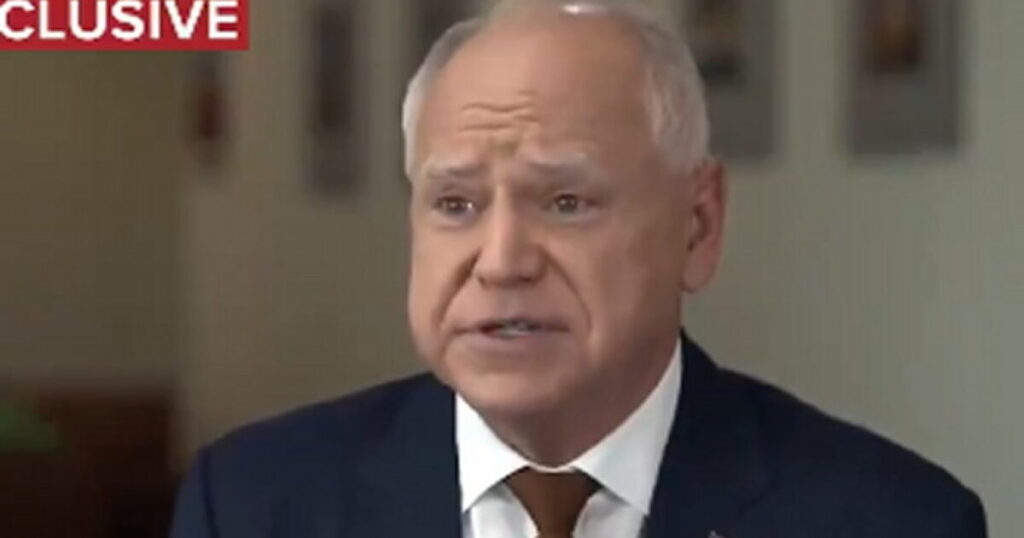Tim Walz, the Governor of Minnesota, has become a focal point of controversy within the Harris campaign due to his recent statements advocating for the abolition of the Electoral College. This move has created dissonance between his public stance and the official position of the Harris campaign, leading to confusion and mixed messages. When questioned by the media, Harris campaign representatives clarified that eliminating the Electoral College is not part of their campaign agenda. This discrepancy has raised eyebrows, and Walz’s attempts to navigate this situation have resulted in a convoluted explanation that has only added to the confusion surrounding the campaign’s true stance on the issue.
In a recent interview with Michael Strahan on ABC News, Walz seemed unprepared to defend his position. Initially, he expressed support for the elimination of the Electoral College, stating it should be replaced by a national popular vote. However, when the ABC News team probed further about Harris’s stance on this issue, Walz shifted his narrative, claiming that his views coincided with the campaign’s official stance. His assertion, “my position is the campaign’s position,” did little to clarify the matter and instead left him appearing flustered and uncertain. This backtracking suggests a disconnect not only within the campaign’s communication but also raises questions about the coherence of their electoral strategy.
At a recent fundraiser hosted by California Governor Gavin Newsom, Walz’s comments regarding the need to abolish the Electoral College made headlines, indicating a deeper frustration among certain Democratic factions about the electoral process. Many Democrats are critical of the Electoral College because they believe it disproportionately favors populous states and cities, specifically liberal strongholds such as New York City, Chicago, and Los Angeles. This perspective is not uncommon among party members who argue that the current system disenfranchises voters in less populous states, highlighting a growing discourse surrounding electoral fairness and representation in the Democratic narrative.
As a candidate, Walz’s conflation of personal opinion and campaign policy has led to public embarrassment, particularly for Vice President Harris, who must now contend with the fallout from his comments. His remarks reflect a broader ideological divide within the Democratic Party itself, where the debate on the future of the Electoral College is emblematic of larger tensions regarding voter representation and democratic values. The disarray of the Harris campaign in addressing this issue is evident, suggesting that internal strategy and communication may need reevaluation to prevent further missteps in the face of national scrutiny.
The response from the Harris campaign clearly signals that they wish to avoid taking an official position on the sensitive matter of the Electoral College at this time. This reluctance may be rooted in a strategic decision to maintain flexibility and appeal to a broader electorate that may not support radical electoral reform. Such a cautious approach could stem from the campaign’s understanding of the potential backlash from moderate Democrats and Independents who may view the elimination of the Electoral College as a significant and divisive shift away from traditional electoral practices. This caution reflects a desire to keep the party united and focused on the broader issues at stake in the upcoming election.
In conclusion, the ongoing situation with Tim Walz and his comments on the Electoral College serves as a cautionary tale about the intricacies of political campaigns and the need for coherent messaging. The Harris campaign must work diligently to clarify its position and reconcile the misalignment displayed by Walz’s remarks. As the conversation around electoral reform continues to evolve within the Democratic Party, it is imperative for the campaign to navigate these discussions thoughtfully and strategically. The incident underscores the challenging landscape Democrats face as they grapple with both internal differences and the expectations of the electorate, ultimately shaping the course of their campaign as they strive for unity and clarity in their messaging.

